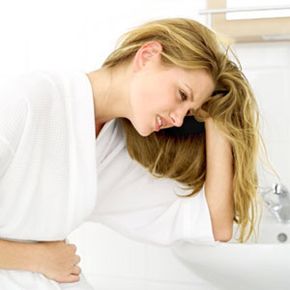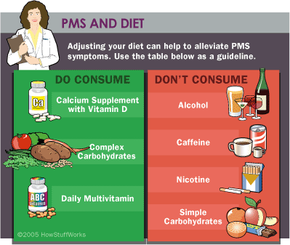Every month like clockwork, some women come down with a strange collection of symptoms. They may become irritable, snapping at their family and friends without the slightest provocation. They may forget where they put their car keys and have trouble paying attention during meetings at work. They may crave chocolate or find themselves sneaking a few pieces of pizza after their children have gone to bed. Or they may suddenly hate the way they look because they feel bloated and their hair looks oily and lifeless.
We are quick to give these symptoms a label: premenstrual syndrome, or PMS. But what is PMS? Some people dismiss it as "that time of the month" -- an excuse that women give in order to eat tons of chocolate and get away with acting a bit cranky.
Advertisement
But doctors recognize PMS as a real medical condition, with real physical and psychological symptoms. For many women, the symptoms are debilitating enough to interfere with their lives.
What is PMS?
Premenstrual Syndrome (PMS) is a set of hormonal changes that trigger a wide range of physical and emotional symptoms in women. These symptoms can range from anger and irritability, to abdominal cramping and breast tenderness, to food cravings. PMS generally occurs between 7 to 14 days before menstruation (a woman's monthly bleeding, or "period") and then stops once menstruation begins. It can only occur during a woman's childbearing years -- after menopause, it stops.
Up to 40 percent of menstruating women experience symptoms of PMS [ref]. In most of these women, PMS is nothing more than an annoyance. But in about 5 percent of women, the symptoms are debilitating enough to interfere with daily life.
In this article, we'll discover how doctors identify PMS, learn the underlying causes of this ailment and find out how women who suffer from it can find relief.
Advertisement


